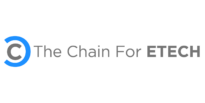Understanding Blockchain Technology in Supply Chain
Blockchain serves as a decentralized ledger, recording transactions in a transparent and secure manner. Its application in supply chain management has brought substantial improvements.
What is Blockchain?
Blockchain is a digital ledger technology. It records transactions across multiple computers in a way that the recorded entries cannot be altered retroactively. Each transaction or block is linked to the previous one, creating an unchangeable chain. This decentralized nature ensures transparency and integrity, reducing the risk of fraud and errors.
How Blockchain is Transforming Supply Chain Management
Blockchain technology enhances visibility into supply chain processes. Real-time tracking enables all participants to monitor the status and location of goods throughout the supply chain. For example, IoT sensors and RFID tags integrated with blockchain help trace the journey of products from manufacturers to consumers.
Smart contracts streamline processes by automatically executing contract terms when predefined conditions are met. These digital contracts minimize the need for intermediaries, speeding up transactions and reducing costs. For instance, when a shipment arrives at a port, a smart contract can automatically release payment to the supplier.
Blockchain also improves auditability, making the verification of transactions straightforward. Companies can ensure compliance with regulations by having an immutable record of all transactions. This transparency is vital for sectors with stringent regulatory requirements like pharmaceuticals or food industries.
Implementing blockchain in supply chain management firms provides a robust solution to reduce inefficiencies, cut costs and improve operational effectiveness, benefiting businesses and consumers alike.
Key Blockchain Innovations in Supply Chain
Blockchain has introduced key innovations that are transforming supply chain management, ensuring higher efficiency and reliability.
Smart Contracts
Smart contracts automate processes, executing transactions only when predefined conditions have been met. This automation reduces the need for intermediaries, speeding up the process and reducing costs. For instance, payments automatically release when goods reach their destination, verified via blockchain records.
Internet of Things (IoT) Integration
IoT devices provide real-time data by interacting directly with the blockchain. Sensors track conditions such as temperature and humidity, ensuring compliance with storage requirements.
If IoT devices detect deviations, they update the blockchain, triggering alerts and corrective actions. This integration ensures a more responsive and resilient supply chain.
Enhanced Traceability and Transparency
Blockchain’s decentralized ledger allows stakeholders to trace products from origin to delivery. This transparency helps identify sources of delays and issues, facilitating quick resolution. For example, consumers can scan a QR code to access the entire history of a product, reinforcing trust and ensuring authenticity.
Industry Applications of Blockchain in Supply Chain

Blockchain is transforming various industries by ensuring transparency, efficiency, and traceability in supply chain management. Here are some key applications in different sectors:
Food and Beverage Industry
Blockchain ensures food safety by providing traceability from farm to table. Enterprises leverage it to track the origin, quality, and journey of products like dairy and seafood.
Benefits
- Traceability: Consumers can verify the source of their products.
- Quality Control: Producers can monitor storage and transport conditions.
- Fraud Reduction: Ensures authenticity of organic and premium products.
Pharmaceutical Sector
Blockchain enhances drug safety by ensuring authenticity and compliance in the supply chain. It combats counterfeit medicines, leveraging secure, tamper-proof records.
Benefits
- Authentication: Verifies the legitimacy of drugs from manufacturer to end consumer.
- Compliance: Meets regulatory standards with accurate record-keeping.
- Recall Efficiency: Allows for swift identification and recall of defective products.
Automotive Industry
Blockchain improves transparency and efficiency in the automotive supply chain. It tracks parts’ origins, maintenance history, and ensures genuine replacements.
- Parts Authenticity: Verifies the originality and fit of automotive parts.
- Maintenance Records: Keeps detailed vehicle histories for better resale value.
- Efficiency: Streamlines operations by reducing paperwork and delays.
Benefits of Blockchain in Supply Chain Management
Blockchain in supply chain management offers numerous advantages. These benefits range from enhanced security to increased efficiency and improved regulatory compliance.
Improved Security and Data Integrity
Blockchain ensures higher security and data integrity by using cryptographic techniques. Each transaction is encrypted into blocks, which hackers cannot easily alter. For example, if someone tampers with a single block, the entire chain requires recalculation. This immutability prevents unauthorized changes and ensures information remains trustworthy.
Increased Efficiency and Cost Savings
Blockchain increases efficiency by automating manual tasks. Smart contracts, self-executing agreements coded into the blockchain, facilitate automatic transactions when predefined conditions are met.
For instance, once a shipment reaches its destination, payment triggers without human intervention. This automation reduces administrative expenses and accelerates processing times.
Better Compliance and Regulatory Adherence
Blockchain fosters improved compliance and regulatory adherence. The immutable ledger records every transaction, ensuring a transparent audit trail. For sectors with strict regulations like pharmaceuticals, this traceability ensures that drugs meet required safety standards. If compliance issues arise, blockchain data provides concrete proof of adherence or points out discrepancies.
Challenges and Considerations
Blockchain technology offers significant benefits in supply chain management, yet poses several challenges.
Technological Barriers
Blockchain demands significant computation power, which limits scalability for large supply chain networks. Legacy systems often lack compatibility with blockchain platforms, hindering integration efforts. Data quantity and complexity can compromise the speed and efficiency of blockchain operations.
Costs and Implementation
Implementing blockchain technology can be costly. High initial investment for infrastructure, training, and system modifications is needed. Small to medium-sized enterprises may find these expenses prohibitive. Ongoing maintenance costs and the need for specialized skills add further financial burdens.
Regulatory Hurdles
Regulatory compliance is a major concern. The global nature of supply chains means navigating various regulations, which can be inconsistent or unclear. Data privacy laws, such as GDPR, impose constraints on data handling and cross-border data flows, complicating blockchain deployments.



 Chief Content Strategist & Unique Author
Paulo Okellyansy is the Chief Content Strategist responsible for curating and managing the platform’s editorial direction. With an in-depth knowledge of cryptocurrency markets and digital finance, Paulo crafts engaging, informative content that resonates with both newcomers and seasoned crypto enthusiasts. His ability to simplify complex topics and identify emerging trends has helped position the website as a go-to resource for cryptocurrency insights.
Chief Content Strategist & Unique Author
Paulo Okellyansy is the Chief Content Strategist responsible for curating and managing the platform’s editorial direction. With an in-depth knowledge of cryptocurrency markets and digital finance, Paulo crafts engaging, informative content that resonates with both newcomers and seasoned crypto enthusiasts. His ability to simplify complex topics and identify emerging trends has helped position the website as a go-to resource for cryptocurrency insights.
